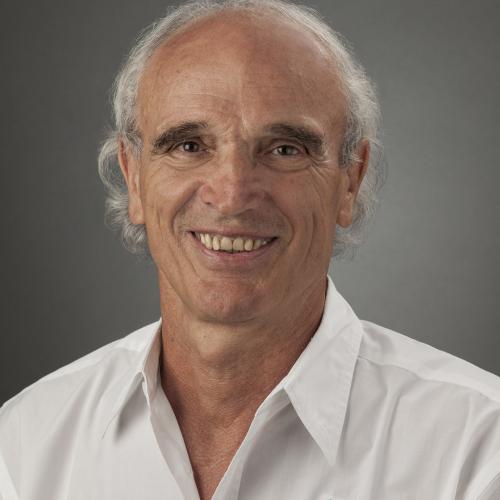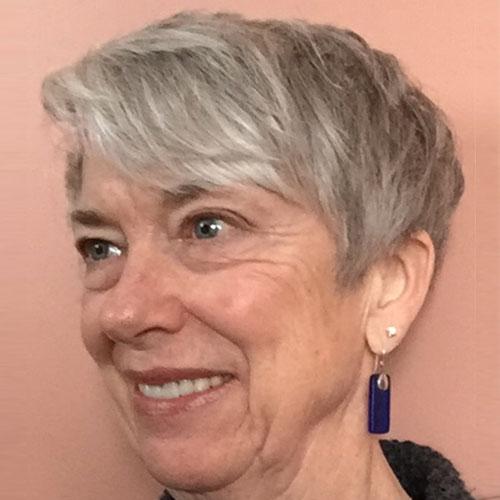Class Hours:
Registration: 8:30 a.m. First day
Class: 9:00 a.m. - 5:00 p.m.
Last Day: 8:00 a.m. - 3:30 p.m.
Times are subject to change.
PSE DESCRIPTION:
Paradigm Shifts in Embryology (PSE)
A Clinical and Embodied Embryology Course for Manual Therapists
Forces of growth and development are present throughout Life, modulating metabolic processes. Many pathologies can de described as an arrest of an early embryologic stage or a slowing of developmental forces. These forces are accessible for healing. We are going to meet the embryonic forces as well as universal forces that model our body plan and our physiology.
Orthopedics is a branch of medicine dealing with the correction or prevention of deformities or disorders of the skeleton and associated structures. By intervening at the level of the embryo we can address very early dysfunctions that can later affect a large number of structures and functions in a mature body.
This is a class related to your patient/client “essence” entering into form as well as a class based on embryology, anatomy and physiology.
Dr Chikly began studying embryology in medical school in 1979-1980. He learned with osteopathic teachers such as Jim Jealous, Patrick van den Heede, Jaap van der Wal, and mainly worked in Paris with Vincent Fleury, physicist (embryologist) at the national research center (CNRS) and has regular feedback from Brian Freeman from Sidney, Australia, anatomist and embryologist. Brian is interested in the biomechanical and biodynamic development of human beings.
Clinical Applications:
This approach can be used in any and every treatment modality you are using, as well as helping you to release very complicated pathologies, pain, inflammation and discomfort that affect different tissues and structures.
Practitioners will use less “force”, less techniques, and have more results. This type of approach will support numerous “spontaneous healing”; these are the results we are having by using the approach described in PSE.
Nevertheless, because we address very precise body structures we will also help numerous specific processes and structures in the body. For example, the allantois will help you regulate dysfunctions of the bladder, sacroiliac, hip as well as deep emotions that can be stored inside of it. The neural crest cells as they are present in the connective tissue, muscles, bones and cartilage of the face will help with all types of traumas. We will also spend time with the cardiovascular system and its very sensitive and continuous endothelium that have so many functions including normally preventing the adhesion and clotting we found in atherosclerosis and some COVID-19 infections (endotheliitis), for example.
Please review your list of terms (see "Preparation" tab) as we are going to enter in depth into the world of embryology and universal forces.
Tentative Labs (if time):
- Lab 1: Cell Cleavage/Multiplication: Foundations of Posture
- Lab 2: Fertilization – Point of Entrance of Spermatozoon
- Lab 3: Endothelium/Endocardium
- Lab 4: Point of Entrance of Spermatozoon and other organs
- Lab 5: Fusion of Pronucleus and Fallopian tube
- Lab 6: Implantation
- Lab 7: Primitive Pit
- Lab 8: Notochord
- Lab 9: Intranotochordal - Hippocampus
- Lab 10: Notochord - Sphenoid - Dorsum Sellae
- Lab 11: Lateral Folding
- Lab 12: Cephalic / Caudal Folding
- Lab 13: Neural Tube Closing
- Lab 14: Neural Crest Cells (NCC)
- Lab 15: Neural Tube Growth
- Lab 16: Somites
- Lab 17: Lateral Plate Mesoderm
- Lab 18: Heart Septum
- Lab 19: 2nd Heart Motility (Intrinsic)
- Lab 20: 3rd Heart Motility (Intrinsic)
- Lab 21: 4th Heart Motility (Intrinsic)
- Lab 22: Mesenteric Arteries
- Lab 23: Allantois
- Lab 24: Lung Alveoli
- Lab 25: Meckel’s Diverticulum
- Lab 26: Ectodermal Ring
- Lab 27: SNC - 1st Brain Flexure
- Lab 28: SNC - 2nd Brain Flexure
- Lab 29: SNC - 3rd Brain Flexure
- Lab 30: Cerebellum
For the More Advanced - Better usage:
- Blastocoel: Blastocystic cavity
- Blastopore: Primitive pit
- Branchial: Pharyngeal
- Gastrulation: Not used in humans
- Ovum (egg): Oocyte, ootid
- Pronephros: Most cephalic part of mesonephros
- Tail: Not used in humans
- Yolk sac: Umbilical vesicle
Attire/Supplies:
Bring comfortable, loose-fitting clothes. Some of these approaches require touching exposed skin, we encourage you to bring a bath towel, lab clothes, and appropriate undergarments so that you are comfortable.
Short fingernails are required for some techniques.
Due to the potential chemical sensitivities of your classmates, please refrain from wearing perfumes or oils to class.
Please call the Institute at 480-999-0808 if you are able to bring a massage or treatment table.
EXPECTED: Contact Continuing Education (CE) Hours Total for massage therapists: 18 CEUs
WORKSHOP SCHEDULE:
9:00 a.m. to 5:30 p.m. Days 1 - 2
9:00 a.m. to 3:30 p.m. Day 3
At least ONE (any) of the following classes: LDT1, NER-L, FAR-U, FAR-L, B1, BCRB, VM, NM, CST.
4 years of clinical practice is suggested.
If you feel you have the skills to attend this class, please fill out the "Form of Exception"
PSE Class Preparation
PSE CLASS PREPARATION: Be sure you clearly understand the following words and, as applicable, know where to locate them in the body:
- Allantois
- Amniotic sac (dorsal cyst)
- Blastomere (name of one of the cells resulting from cleavage)
- Blastocyst
- Caudal (refers to the “tail”)
- Cephalic (refers to the head)
- Cleavage (cell divisions of the zygote)
- Conception
- Conceptus
- Diverticulum
- Ectoderm
- Embryo
- Endoderm
- Endothelium (functions in a vessel)
- Epiblast (the upper cell layer of the bilaminar “disc”)
- Extraembryonic mesoblast
- Fertilization
- Fetus
- Foregut
- Gamete (reproductive cell: ovum or sperm)
- Germ layer
- Hindgut
- Hypoblast (the lower cell layer of the bilaminar “disc”)
- Inner cell mass (embryoblast)
- Invagination
- Meckel's Diverticulum
- Mesoderm
- Midgut
- Morula (16-32 cells, blastomere)
- Neural crest cell
- Neurulation
- Notochord
- Ovulation
- Ovum
- Placenta
- Polar body
- Primitive streak (a depression appearing in the epiblast at the caudal end)
- Primitive pit/node
- Pronucleus (the male or female “nucleus” at the start of fertilization)
- Rostral (refers to the “beak” or head) equivalent to “cephalic”
- Sinoatrial(SA) node
- Somatopleure (somatopleuric mesoderm)
- Somite
- Splanchnopleure (splanchnopleuric mesoderm)
- Trophoblast
- Uterus endometrium / mucosa
- Yolk sac (ventral cyst)
- Zona pellucida (a clear layer of glycoproteins/sugars surrounding the ovum/zygote)
- Zygote (fertilized egg)
Price: $950
CHI-Pak: $750
Repeat: $475
Cancellation Policy:
Tuition Transfer: Tuition is fully transferable up to 7 days before the start of the class.
Within 7 days, a $300.00 administrative fee will apply.
Tuition Refund: To request a tuition refund, please submit your request in writing. Emails are acceptable. Tuition is fully refundable up to 30 days before the start of the class, after which your tuition is non-refundable. In case of an emergency, any requests for a refund later than 30 days before class starts, will be considered on a case-by-case basis.
Seats are limited. Reserve today: 480-999-0808 or [email protected]






